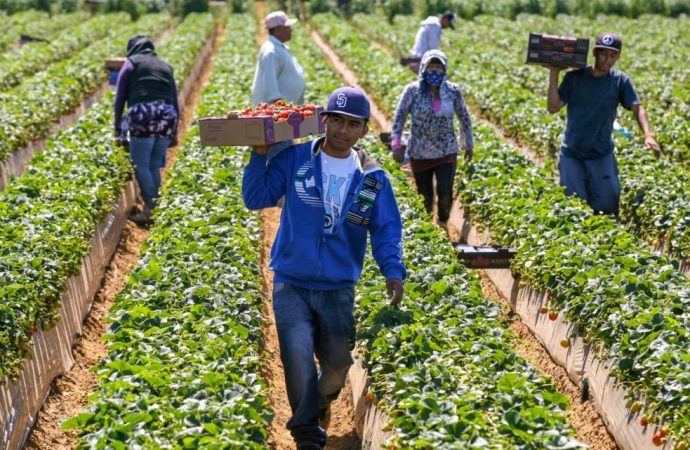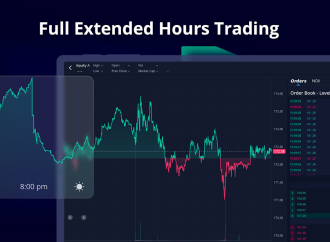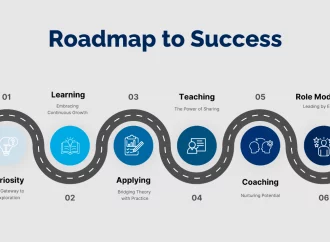Introduction: Meet Dr. Emily Hayes, a distinguished agricultural economist with over two decades of experience in bridging the realms of education and commerce within the agricultural sector. In this insightful article, Dr. Hayes delves into the pivotal role of Agricultural Education in driving agricultural commerce, shedding light on its multifaceted impacts on market dynamics, sustainable
Introduction:
Meet Dr. Emily Hayes, a distinguished agricultural economist with over two decades of experience in bridging the realms of education and commerce within the agricultural sector. In this insightful article, Dr. Hayes delves into the pivotal role of Agricultural Education in driving agricultural commerce, shedding light on its multifaceted impacts on market dynamics, sustainable practices, and economic growth.
Understanding Market Dynamics with Agricultural Education
Navigating the intricate landscape of agricultural commerce requires a deep understanding of market dynamics. Agricultural Education serves as the cornerstone, empowering farmers, producers, and stakeholders with the knowledge and skills necessary to adapt to fluctuating market trends, anticipate consumer demands, and capitalize on emerging opportunities.
Cultivating Sustainable Practices with Agricultural Education

Image by:.conserve-energy-future.com
Agricultural Education plays a central role in fostering sustainability within the agricultural sector. Through innovative programs and initiatives, farmers gain insights into eco-friendly farming techniques, resource management, and conservation practices. By embracing sustainable agriculture, stakeholders not only safeguard the environment but also ensure the long-term viability of their operations in an increasingly competitive market.
Driving Economic Growth with Agricultural Education
Agricultural Education acts as a catalyst for economic growth within the agricultural realm. By equipping individuals with the expertise to optimize productivity, enhance efficiency, and leverage technology, education fuels innovation and entrepreneurship. Empowered with knowledge, farmers can diversify their revenue streams, access new markets, and contribute to the overall prosperity of rural communities.
Visual Table: Key Insights
| Aspect | Description |
|---|---|
| Market Dynamics | Understanding market trends, consumer preferences, and competitive landscapes. |
| Sustainable Practices | Implementing eco-friendly farming techniques, resource management, and conservation practices. |
| Economic Growth | Driving innovation, entrepreneurship, and diversification of revenue streams. |
Embracing Lifelong Learning

Image by:linkedin.com
In a rapidly evolving agricultural landscape, the pursuit of knowledge is a lifelong journey. Agricultural Education empowers individuals to stay abreast of Agriculture Technology, regulatory changes, and global market shifts. By fostering a culture of continuous learning, stakeholders remain agile, resilient, and poised for success in an ever-changing industry.
Comparative Table: Education vs. Agricultural Commerce
| Aspect | Education | Agricultural Commerce |
|---|---|---|
| Purpose | Empowerment, knowledge acquisition, skill development | Market participation, economic transactions, value creation |
| Impact | Empowers individuals, fosters innovation and entrepreneurship | Drives economic growth, promotes sustainability |
| Stakeholders | Farmers, producers, researchers, policymakers | Producers, distributors, consumers, regulatory bodies |
| Long-Term Vision | Lifelong learning, adaptation to change, industry advancement | Sustainable practices, market resilience, community development |
Case Studies: Real-World Impacts
Through compelling case studies, we witness firsthand the transformative power of edu in agricultural commerce. From small-scale farmers adopting precision agriculture techniques to agribusinesses implementing sustainable supply chain practices, these examples underscore the tangible benefits of educational initiatives on market performance and community development.
Conclusion:
As Dr. Hayes concludes, edu emerges as a driving force behind agricultural commerce, empowering individuals, fostering sustainability, and fueling economic growth. By investing in edu, stakeholders not only secure the future of the agricultural sector but also cultivate a prosperous and resilient global food system.
Knowledge Source:
Dr. Emily Hayes is a renowned agricultural economist with a Ph.D. in Agricultural Economics from a leading research institution. With extensive experience in academia, research, and industry consulting, Dr. Hayes specializes in analyzing the intersection of edu and agricultural commerce, providing invaluable insights to policymakers, stakeholders, and agricultural communities worldwide.




















